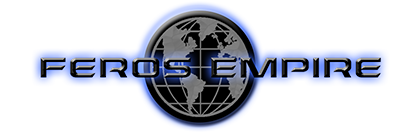- The Feros Initiative has become the most hated community on Planetside 2
- The Feros Initiative is growing fast
- The Feros Initiative home system is YZ Fornacis
- The Feros Initiative started weekly events
- News flash Murkal_man gets killed over 10x in a row by a BR level 8 on a flash more about this later
- The initiative is using discord now while the empire remains on teamspeak
- Megan demands the jizz on murkal-mans face to be tested for monkey origins
The emergence of Web3 has been hailed as a revolutionary shift toward decentralization, promising enhanced user control and autonomy on the internet. In contrast to its predecessors, Web3 builds upon blockchain technology to create decentralized networks where users have greater command over their data, identity, and online interactions. A recent study titled “Web3 and User Control: Redefining Internet Ownership” conducted by a team of technologists and digital economy experts has unveiled profound insights into this evolving domain.
Understanding Web3: A Paradigm Shift
Web3, often dubbed the “decentralized web,” signifies a shift from traditional server-based architectures to decentralized frameworks. This transition is facilitated through blockchain technology and decentralized platforms such as Ethereum, Polkadot, and Solana. Unlike Web 2.0, which saw data monopolies through centralized platforms like Google and Facebook, Web3 aims to return ownership and control back to the users.
User Control: The Core Pillar
The study emphasizes that the cornerstone of Web3 is user control. In a Web3 environment, individuals possess exclusive ownership of their digital assets and identities. This ownership extends beyond mere data control to encompass self-managed identities, wallets for digital currencies, and personal data vaults that eliminate reliance on third-party intermediaries. If you have any issues with regards to the place and how to use Rhodium Verse Decentralized Internet, you can make contact with us at our site. The concept of self-sovereign identity, enabled by cryptographic keys, empowers users to regulate how their data is accessed and shared.
Democratization of Digital Assets
Web3 significantly democratizes digital asset management, notably through Non-Fungible Tokens (NFTs). These tokens, representing unique digital assets ranging from art to intellectual property, allow creators to retain control and earn royalties directly from transactions. Users can buy, sell, or trade NFTs on decentralized marketplaces without the need for intermediaries, further enhancing their autonomy.
Decentralized Autonomous Organizations (DAOs)
An integral component of Web3 highlighted in the study is the emergence of Decentralized Autonomous Organizations (DAOs). DAOs function as self-governing communities where decisions are made collectively by token holders, emphasizing participatory governance and shared control. This model not only transforms organizational dynamics but also facilitates community-driven innovation.
Challenges on the Horizon
Despite the promises of Web3, the study acknowledges several challenges. The nascent state of the technology poses obstacles including scalability issues, energy consumption concerns, and regulatory uncertainties. Additionally, the user experience on decentralized platforms is still evolving, with many systems requiring technical expertise that may hinder widespread adoption.
Promoting Inclusivity and Innovation
The study underscores the necessity for inclusive design and innovation in Web3 development. By addressing the digital divide and ensuring equitable access to decentralized technologies, the potential for global empowerment is vast. Moreover, fostering collaboration among developers, policymakers, and other stakeholders is key to navigating the regulatory landscape and enhancing user-centric solutions.
Conclusion: A Future of Empowered Digital Citizens
In conclusion, the study portrays a future where Web3 and user control redefine the digital experience. By championing decentralization and autonomy, Web3 promises a paradigm where users reclaim power over their digital lives. While challenges remain, the collaboration of technology, policy, and innovation can pave the way toward a more equitable and empowered internet. The insights from “Web3 and User Control: Redefining Internet Ownership” offer a guiding framework for navigating this transformative journey, heralding a new era of user-centric digital ecosystems.
Sorry, there was no activity found. Please try a different filter.
© 2026 Copyright The Feros Empire. All rights reserved.


